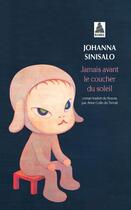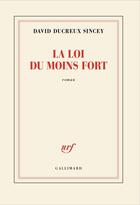-
Nombre de pages : (-)
-
Collection :
(-)
-
Genre :
(-)
-
Thème :
Non attribué
-
Prix littéraire(s) :
(-)
Résumé:
During the second decade of the twenty-first century the spread of Colony Collapse Disorder, the sudden mass disappearance of bees, reaches the point where much of the world - although not, as yet, Finland - is facing agricultural and ecological disaster. Amateur beekeeper Orvo, devastated by... Voir plus
During the second decade of the twenty-first century the spread of Colony Collapse Disorder, the sudden mass disappearance of bees, reaches the point where much of the world - although not, as yet, Finland - is facing agricultural and ecological disaster. Amateur beekeeper Orvo, devastated by the recent death of his eco- warrior son, finds two of his hives deserted and begins to fear that the 'epidemic' has reached Scandinavia. Then, in the attic of the old barn, he makes a mystical and frightening discovery: a pathway to a parallel world. Is it a hallucination stimulated by sorrow and loss - or is it something very real and connected with the bees' disappearance? His research teaches him that in practically every culture bees are viewed as half-supernatural messengers that can travel between worlds and are associated with resurrection and the afterlife. He begins to wonder if this portal could reunite him with his dead son and whether he can himself escape the ecological meltdown of this world. The Blood of Angels reworks the Orpheus myth while analysing modern man's need to deny his mortality and raise himself above the rest of nature, to compare himself to the angels - but at what price?
Donner votre avis















